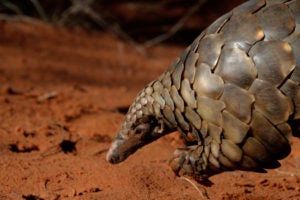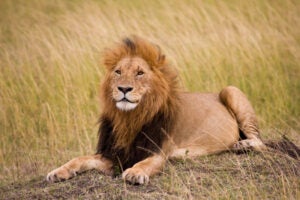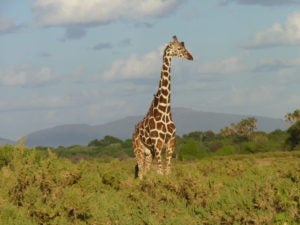South Africa—Following publication of an online story in the UK’s Daily Express newspaper, published (11 May 2020), Humane Society International-Africa has released the following statement of clarification regarding the misleading nature of its headline and various quotes attributed to Audrey Delsink, HSI-Africa’s wildlife director.
HSI-Africa’s Audrey Delsink addressed the global wildlife trade in a recent phone interview with the Express and detailed the sad reality that pangolins are the most trafficked land mammal and are illegally trafficked from South Africa to China, to be eaten as delicacies and used in traditional medical elixirs. Delsink also explained that pangolins have been cited as one of the possible intermediate hosts for the virus, to which scientists believe humans were first exposed at a wildlife market in Wuhan, China.
While Delsink conceded that it is not inconceivable a pangolin trafficked from South Africa could have ended up in a wildlife market in Wuhan, China, where the conditions were such that COVID-19 first evolved, she made no suggestion at all that the virus originated in South Africa. The article incorrectly implies that a South African pangolin was the “host” and carried the disease from South Africa, which is not the view of Delsink or of HSI and for this reason HSI-Africa has reached out to the Express, requesting for the article to be corrected.
“The trade in wildlife through incredibly inhumane methods is not just an animal welfare concern, but it poses risks to public health. Scientists have linked the COVID-19 pandemic to wildlife trade – specifically to the consumption of wildlife at a market in Wuhan, China. Globally, animals, including endangered animals, are found at wildlife markets, held in close confinement and sold for consumption, fashion, medicine and the pet trade. We urge governments to learn from this crisis and to ban the trade in wildlife for these purposes to minimise the risks of future zoonotic disease outbreaks”, said Delsink.
Humane Society International, along with many other international organisations, has called on governments to urgently ban in the trade in and consumption of wild animals worldwide. Last month, Humane Society International published a science-based white paper, WILDLIFE MARKETS and COVID-19, addressing the links between zoonotic diseases and the wildlife trade.
Fast facts:
- Zoonotic diseases are responsible for over two billion cases of human illness and over two million human deaths each year.
- Zoonoses account for 58% of all known human pathogens, and for 73% of all emerging infectious diseases affecting humans.
- Risk of disease transmission is prevalent across all aspects of wildlife trade, which also supplies products to the traditional medicine industry.
- Chinese academics have called on the government to support transitioning the wildlife farming industry away from the production of traditional medicine,as studies have highlighted that over 80% of Traditional Medicine consumers would consider herbal or synthetic alternatives to wild animal products.
- In South Africa, there is a legal lion bone trade that primarily feeds the Asian market for traditional medicine,as well as luxury items that serve as a status symbol. Currently, there are approximately 12,000 lions – living in captive facilities to supply this industry – four times more than the entire South African wild lion population.
- The consumption of wildlife products has been linked to zoonotic diseases,and the captive conditions are conducive to the development of new emerging pathogens.
ENDS
Media Contact: HSI-Africa: Leozette Roode, media & outreach manager, lroode@hsi.org, +2771 360 1104



